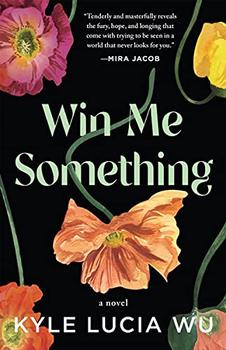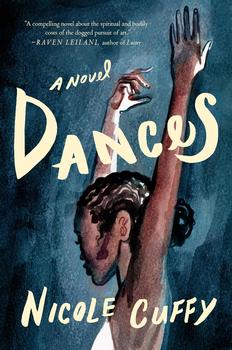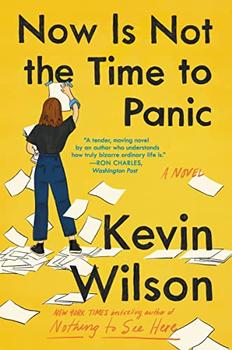Summary | Excerpt | Reading Guide | Reviews | Beyond the book | Read-Alikes | Genres & Themes | Author Bio

Kyle Lucia Wu's Win Me Something opens with a young woman named Willa explaining that she did not feel cared for in the family environment in which she was raised. Yet she has applied to care for someone else. She is interviewing with Nathalie Adrien, who lives in the affluent Tribeca neighborhood of New York City with her husband Gabe and is seeking a nanny for their nine-year-old daughter, Bijou. In response to Nathalie's questions, Willa glosses over her work and life experience. At one point, Nathalie asks if Willa has always liked children, implying that the position she wants should be a logical extension of who she is. "I didn't like children," Willa tells the reader. But she finds that she does like Bijou, a precocious aspiring chef, and Bijou likes her. And so Willa, directionless in a way not uncommon for someone in her mid-20s, allows herself to imagine that direction is something the seemingly grounded Adriens can give her.
After Willa is hired, we are given more specifics of her life. She is second-generation Chinese American on her father's side, and grew up with her white mother; each of her divorced parents now has a second spouse and family. We learn of how she dealt with racist comments from her classmates as a child, and are presented with scenes showing the curious and absurd position in which working for the wealthy, white Adriens puts her, some of which revolve around Bijou's study of Mandarin, which is Willa's father's first language but which she herself does not speak.
As someone who shares considerable background with Wu's character, including that of being a biracial Asian woman with divorced parents, I found the details of her struggles eminently relatable. In fact, the number of textbook (if entirely realistic) microaggressions Willa recounts enduring, and the matter-of-fact way in which she explains her reactions to them, had me at first uncomfortable and involuntarily wondering, will this book, with its emphasized moments of racial suffering, be seen as endeavoring to educate white people, appeal to their sympathy? Questions like these are frankly useless for author and reader alike. They form part of the reading experience for me and many others nevertheless. I was ultimately able to appreciate Wu's novel more because of these concerns, as Willa struggles with her own feelings about the white gaze but is given space to be and do much more. As much as Win Me Something may be legitimately about the experience of being biracial, readers shouldn't pick it up expecting a lesson in empathy for the other, or a comeuppance for the Adriens and their ilk, but rather to appreciate Wu's unhurried, organic character development and skillful, nuanced storytelling.
Willa is at an age where one is still living the direct consequences of childhood, where it feels perversely like everything is happening over and over while also still happening for the first time. That tedium and helplessness is reflected in her early narration. But Win Me Something isn't about Willa's suffering or lack of power. It isn't about her taking back power, either. It's a subtly rendered and satisfying story of someone on the verge of beginning to know herself — gentle and confident in its shifts of direction, blossoming in complexity like a fine wine as it opens into the reader's mind. The novel is first mysterious and loaded with possibility, then flooded with a sense of Willa's limitations, and finally about her autonomy and choices. Her time with the Adriens represents yet another period of her life in which she is between worlds, drifting on the edge of things, but unlike with her family circumstances, she has placed herself there.
When Willa meets Ethan, Nathalie's brother, his disruptive nature suggests that she may be fated to fall for him. He's obnoxious, but shows an interest in her that at times seems genuine. In a different kind of story, the two would bicker and eventually fall in love, landing Willa in the family she idealizes and solving all of her problems. But it's difficult for the reader to know what to make of Ethan, just as it's difficult for Willa to know what to make of him. While she sometimes feels drawn to him, she also objectifies him, albeit in a different way than he may be objectifying her.
Rife with social and internal tensions as well as the fraught mentality of late adolescence, Win Me Something is nevertheless a quiet, reflective read with a long, delicate finish. Willa's time with the Adriens serves as a stepping stone for her, but in a much less dramatic way than she hopes or expects. The reader is left with the feeling that she has not proven anything and will not prove anything, to herself or to those who have misunderstood her. Having moved through her life in a series of performances, she is ultimately spared the burden of another performance for the reader. She exists in the space where she has landed, self-evident as the Adriens, as anyone.
![]() This review
first ran in the November 17, 2021
issue of BookBrowse Recommends.
This review
first ran in the November 17, 2021
issue of BookBrowse Recommends.

If you liked Win Me Something, try these:

by Nicole Cuffy
Published 2024
A provocative and lyrical debut novel follows a trailblazing Black ballerina who must reconcile the ever-rising stakes of her grueling career with difficult questions of love, loss, and her journey to self-liberation, from a sensuous new voice in fiction.

by Kevin Wilson
Published 2023
An exuberant, bighearted novel about two teenage misfits who spectacularly collide one fateful summer, and the art they make that changes their lives forever.
Your guide toexceptional books
BookBrowse seeks out and recommends the best in contemporary fiction and nonfiction—books that not only engage and entertain but also deepen our understanding of ourselves and the world around us.